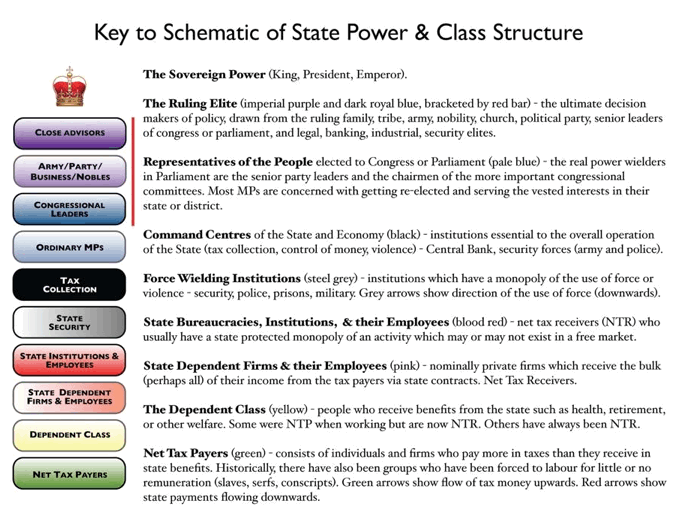Liberty Matters
Rothbard, Conspiracies, and Culture Wars
 Aware that the ruling class is unavoidably constituted by its relationship with the state, critical observers of contemporary politics and society will undoubtedly wish to take full advantage of the historical, sociological, and philosophical enrichments of class analysis offered by multiple contributors to the classical-liberal and libertarian conversations in recent decades. Still, they may view something like “Rothbardian synthesis” (Hart’s phrase) with appreciation.
Aware that the ruling class is unavoidably constituted by its relationship with the state, critical observers of contemporary politics and society will undoubtedly wish to take full advantage of the historical, sociological, and philosophical enrichments of class analysis offered by multiple contributors to the classical-liberal and libertarian conversations in recent decades. Still, they may view something like “Rothbardian synthesis” (Hart’s phrase) with appreciation.Davies quite appropriately raises some critical questions about Rothbard’s class-analytic project. I want to focus on two concerns Davies notes.
(i) Davies suggests that Rothbard’s approach “has a tendency to a conspiracy-theory view of politics.” I am not sure why this should necessarily be problematic—or why it need necessarily be incompatible with a more sociologically rich approach.
One reason to think this might be so is that the class analysis of sociologists like Mills and Domhoff is hardly incompatible with positing conspiratorial mischief-making. If those Mills called “the power elite” are essentially thugs and bandits, then there is surely good reason to expect them to engage in theft and violence. If political leaders are selected for their ambition—and so their willingness to put principle to one side—and their inclination to serve the interests of wealthy and well-connected, there is surely good reason to expect them, too, to engage in theft and violence. Thus, there’s an argument to be made that a story suggesting that elites are up to no good is more likely to be true than a similar story about an ordinary member of the population.
Similarly, if elites play a significant role in shaping both state policy and the stances of media companies, there is good reason to assume that the stories injurious to the interests of the power elite are less likely to receive support from the mainstream media and government officials than stories beneficial to their interests. So it is sensible to expect that true stories of misdeeds by the power elite will not be endorsed or publicized by the mainstream media.
That elites are more likely than ordinary people to be involved in plunder and murder, and that the mainstream media are unlikely to give much attention to stories of their involvement in such activities, does not, of course, show that any particular story about elite misconduct that is ridiculed in the mainstream media is correct—each such story should be gauged on its own merits. However, it does provide good reason to suspect that some conspiracy theories might be correct and to refuse to dismiss such theories simply because they are treated as silly by the mainstream media.
Someone could, at any rate, reason this way even while granting the merits of sociological explanations of political mischief-making that look at the shared characteristics and circumstances of particular actors (this seems entirely compatible with methodological individualism) without supposing that their actions are consciously coordinated. One can grant the merits both of narratives that focus on the deliberate choices of particular elite actors and those associated with them and of analyses that see people of particular sorts as responding in predictable ways to similar conditions. (And, of course, one can understand putatively conspiratorial actions by particular elite actors through the lens of sociological analyses that contextualize these actors within their social milieux.)
We certainly have good reason to start with sociological accounts that don’t rely on assumptions about coordinated conspiratorial activities. But we needn’t stop there, necessarily, when narratives of consciously organized elite mischief seem to make the most sense.
(ii) Davies suggests that a Rothbardian attempt to “[mount] a populist revolt against the established American state” will be predictably linked with “a strong element of cultural conservatism and ethnic-identity politics along with a simplistic contrast between the corrupt elite and the honest populace.” I share Davies’s implied disaffection for cultural conservatism and identity politics. But I am not sure why “a populist revolt against the established American state” needs to involve either. Indeed, it seems as if the reverse might be true. By emphasizing the mischief-making of entrenched elites enriched by their relationship with the state, populist campaigners could, it seems to me, mobilize potential participants in a revolt across cultural and ethnic lines. People on opposite sides of the culture wars might well share apprehension at misrule by the wealthy and well-connected and their allies in the New Class. The same is true for different ethnocultural groups. As Bill Kauffman has noted, there is a great deal of room for alliance-building between, say, hippies and drug-freedom advocates on the one hand and home-schoolers and gun enthusiasts on the other. The prospect of freedom is powerful, and it might serve to unite otherwise disparate actors in an attack on the status (statist?) quo.
Copyright and Fair Use Statement
“Liberty Matters” is the copyright of Liberty Fund, Inc. This material is put on line to further the educational goals of Liberty Fund, Inc. These essays and responses may be quoted and otherwise used under “fair use” provisions for educational and academic purposes. To reprint these essays in course booklets requires the prior permission of Liberty Fund, Inc. Please contact oll@libertyfund.org if you have any questions.